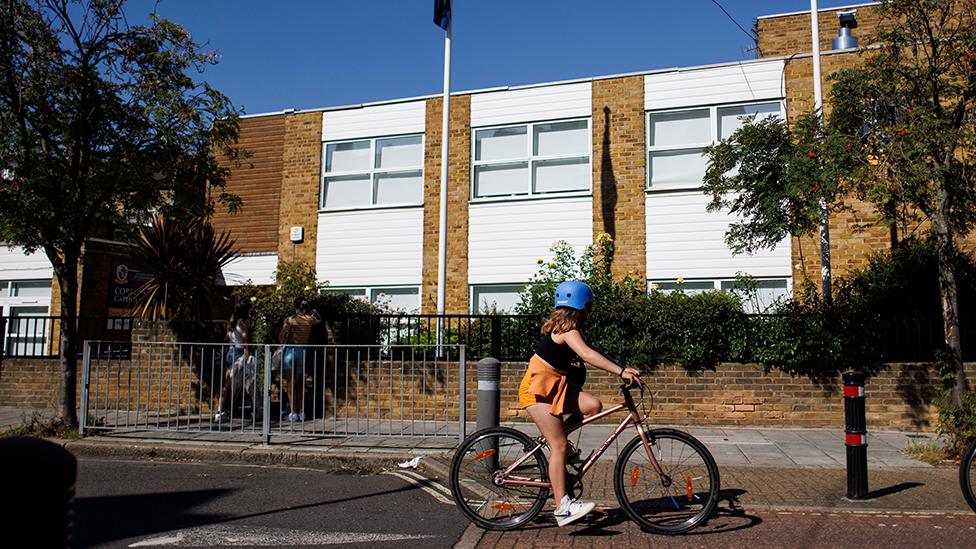Bury Market: Parts of town's market closed amid concrete fears
- Published
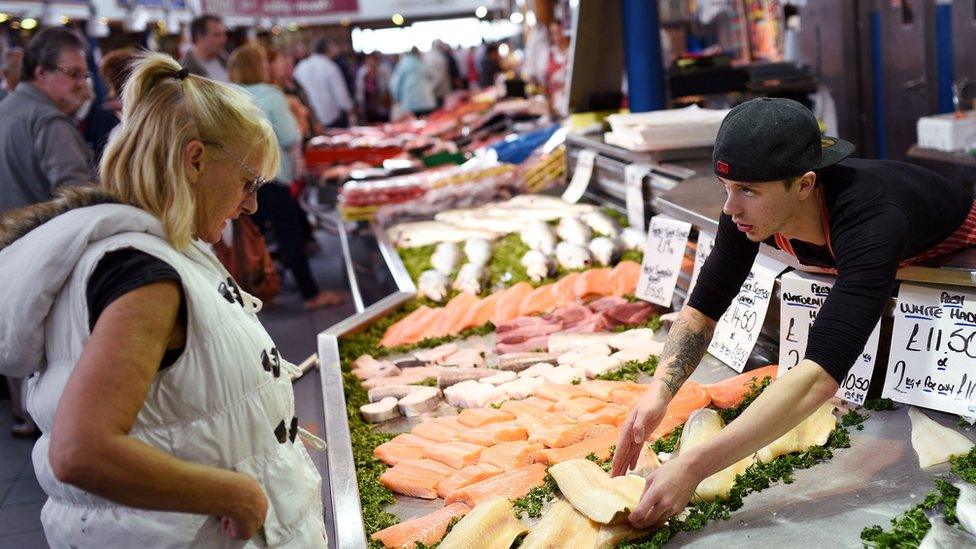
The outdoor market and the fish and meat hall will remain open
Parts of the famous Bury Market have been closed until further notice due to unsafe concrete.
About 35 indoor traders are being moved to nearby premises while the outdoor market and the fish and meat hall remains open.
The market was built with reinforced autoclaved aerated concrete (Raac) - which is prone to crumble - in 1971.
More than 100 schools had to shut earlier this year because they contained the unsafe material.
A Bury Council spokesman said 16 from the affected 35 traders had moved to temporary premises earlier and plans were in place to relocate the remaining traders "in the next few days".
Separately, 14 traders - whose premises were attached to the indoor hall but had their own roofs - could remain at their original site of their stall and had already resumed business, the spokesman added.
Charlotte Morris, cabinet member for culture and the economy, said: "The safety of traders and visitors is our top priority."
Traders however have voiced fears the market could stay closed in the run up to Christmas - one of the busiest times of year.
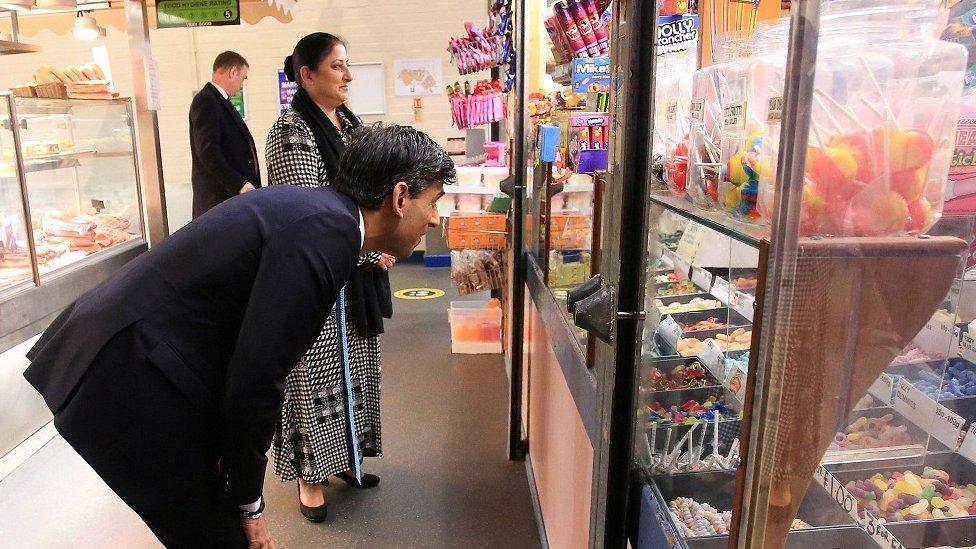
Rishi Sunak visited the famous Bury Market when he was chancellor in 2021
Steve Maloney, who runs the BBQ Barn at the indoor market, said he only found out yesterday evening when it was too late to cancel with customers.
He said he had orders for today for Christmas and a separate buffet requiring 200 items.
Mr Maloney added that his main concern was his staff who want answers today".
"Have we got anywhere to work? Are we going to get a wage? They've all got mortgages, kids to feed, bills to pay," he told BBC Radio Manchester.
"We work all week to pay bills and then Friday and Saturday we earn a living and I pay my staff.
"We're now at that point where Friday and Saturday has been omitted from the working week so we have no source of income.
"Stalls like mine, which is a massive cut-meats operation with refrigerated counters. All bespoke, all built in. It can't just be moved, so it's going to be a problem for us."
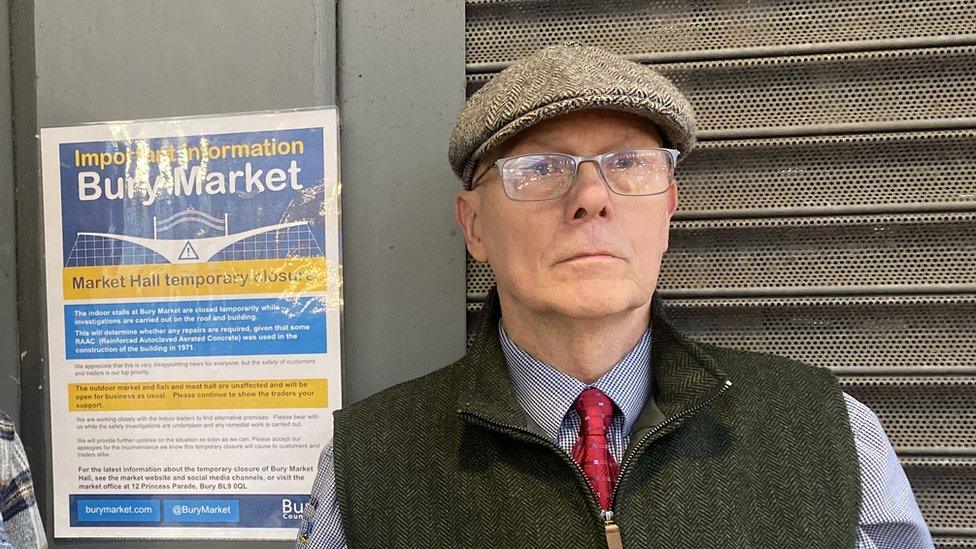
Steve Maloney said his barbecue stall cannot be easily relocated
Between the 1950s and 1990s, Raac was used mainly for flat roofing but also in floors and walls as a cheaper alternative to standard concrete.
Thousands of buildings were made with the material, which is susceptible to structural failure when exposed to moisture.
Its lifespan of about 30 years also causes problems.
The government recently said 42 hospitals and 214 schools and colleges in England contained the potentially crumbling concrete.
Bury Market has operated from several sites since 1440 and moved to its current premises in the early 1970s.
Its reputation for produce and affordable prices has led to visits from coach tours as well as local residents.

Why not follow BBC North West on Facebook, external, Twitter, external and Instagram, external? You can also send story ideas to northwest.newsonline@bbc.co.uk, external
- Published19 September 2023

- Published6 September 2023

- Published20 October 2023
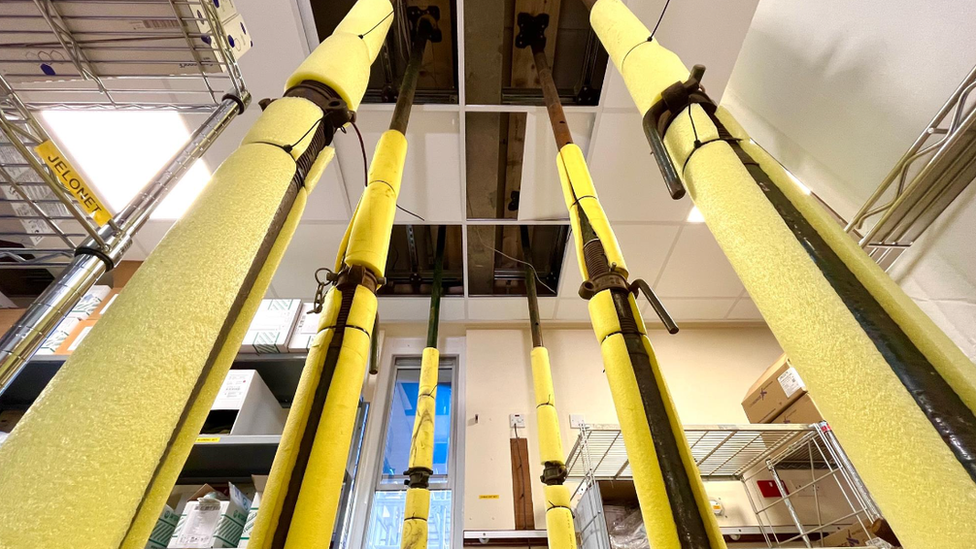
- Published13 February 2024
